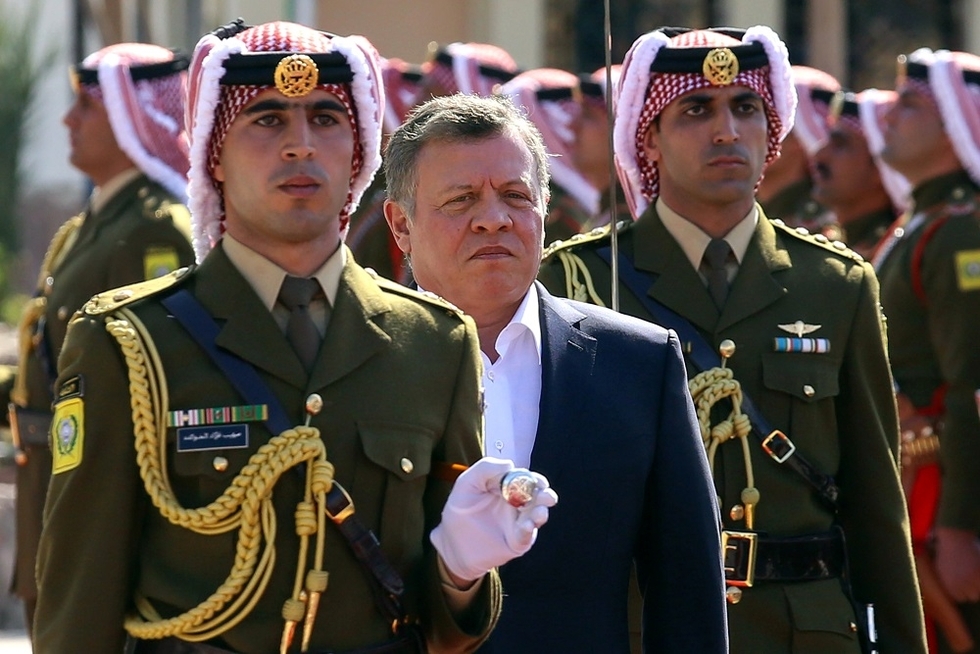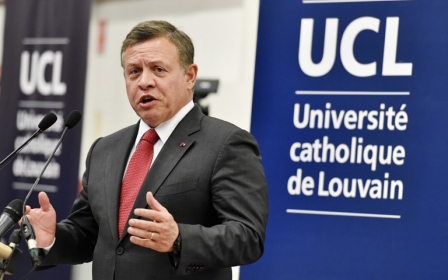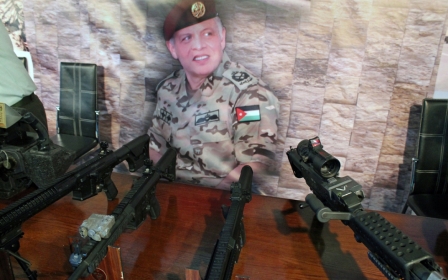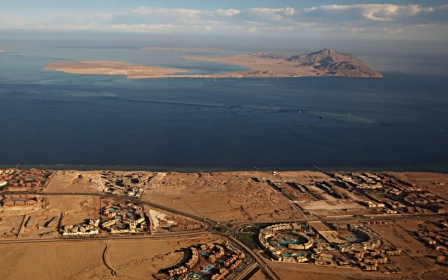Jordan's king appoints seasoned politician PM amid Saudi investment plan

King Abdullah II has dissolved Jordan’s parliament and named seasoned politician Hani Mulki as the country’s new prime minister at a time when investment from Saudi Arabia is expected to increase significantly.
The appointment comes at the end of parliament’s four-year term, and hours after the resignation of Abdullah Ensour, one of the longest-serving prime ministers in Jordan’s history.
As per the country’s constitution, Mulki has four months to call elections and form a new government. He will do so under new electoral laws designed to draw the country’s political institutions away from tribalism, a powerful force across Jordanian life.
In the forthcoming election, independent political candidates will no longer run as individuals, but as part of a list of candidates – a mechanism designed to reduce reliance on tribal support. The electoral map has also been re-drafted, particularly for rural areas.
While both changes are designed to shift voting away from tribalism, critics say they stop short of efforts needed and may hinder independent, reform-minded candidates. The face of opposition will also be different in the coming election.
Jordan’s main opposition party has historically come from the Muslim Brotherhood, but the group has broken apart under increasing pressure from the government to make its status official.
The elections are likely to include some Brotherhood candidates among the mainly pro-monarchy parties and independents, but they will be aspirants belonging to the smaller, less-hardline incarnation of the party that remains active in the political arena. Mulki has been referred to by some as a caretaker prime minister, but his background suggests otherwise.
Economic crisis
The country is in an economic crisis that grows deeper by the day. Mulki, a veteran diplomat and a key negotiator in the peace deal between Jordan and Israel, has experience bringing money to the table: in a previous role as head of the Aqaba special economic zone, he opened one of Jordan’s most profitable areas up to foreign investors.
And like many Jordanian politicians, was born to the job: his father, Fawzi Mulki, was prime minister in 1953-54.
“He’s a man with huge experience in the political and economic fields,” former government spokesman Nabeel al-Sharif said of Mulki.
Once the new parliament is in place, one of Mulki’s top priorities will be shepherding a massive investment project between Jordan and neighbour Saudi Arabia.
Saudi’s economic reforms, led by Deputy Crown Prince Mohamed Bin Salman, include the creation of a Saudi-Jordan council to invest significant Saudi capital in Jordan. The move reflects Saudi Arabia’s desire to diversify its own investments, as well as an increasingly chilly welcome for Saudi money in the West.
Regionally, Saudi Arabia and Jordan - long the wealthy big brother and the handout-dependent little brother - are drawing closer in the face of escalating crises.
The military and ideological battles against the Islamic State (IS) group are fronts where Jordan and its big brother share common interests.
And regional investment is a lifeline for Jordan – especially at a time when more traditional backers like the US are not providing the money King Abdullah says his country needs to weather the storms. Jordan’s public debt is currently 93.8 per cent of its GDP: new approaches, experts say, are needed.
“This is a new economic era for Jordan, based mostly on new Saudi investment in the country. These are going to be huge investments managed by the joint council. In the past, we were talking about donations or a project here, a project there. Now it’s huge, like billions,” Sharif said.
Among the last things Jordan’s outgoing government approved were amendments to the country’s constitution, giving the king the right to independently appoint some of the country’s most powerful posts, including the heads of the army, intelligence agency and police.
A new investment law was also approved, creating a national fund that reports solely to the monarch. Both moves streamline control of the country’s economic and security assets under the king, who is head of state, chief executive and commander-in-chief of the armed forces.
He also appoints, dismisses and accepts the resignation of the prime minister and other ministers – the latter at the prime minister’s recommendation.
New MEE newsletter: Jerusalem Dispatch
Sign up to get the latest insights and analysis on Israel-Palestine, alongside Turkey Unpacked and other MEE newsletters
Middle East Eye delivers independent and unrivalled coverage and analysis of the Middle East, North Africa and beyond. To learn more about republishing this content and the associated fees, please fill out this form. More about MEE can be found here.




